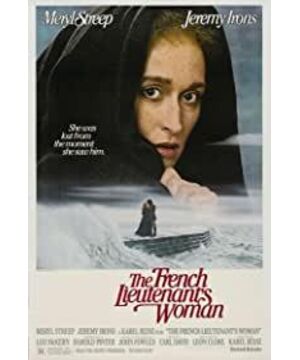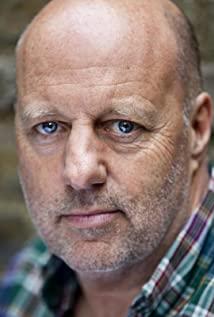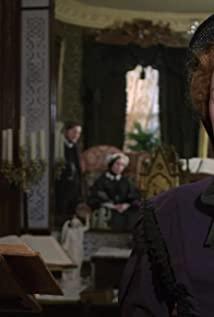When he went to look for her, a steamboat with steam appeared on the long river. This is the result of the industrial revolution and a symbol of a country's progress.
Their last scene was to paddle the boat deeper into the lake.
John Fowles somewhat satirized the accusation that the industrial revolution brought about the cutting of human minds and disrupted separation. Of course, the director respected this appeal of the original work, and highlighted the other focus of the novel, which is the grasp and control of human nature.
Therefore, he arranged for a modern director and actor couple to use an unruly relationship to correspond to the love in the era of the industrial revolution, weakening the depth of the era and strengthening the commonality of the emotions of the two sexes.
Love and environment are inseparable and independent of each other. Regardless of the age, there is a rush for forbidden love.
Charles and Sarah, Anna and Mike, are stories within stories, novels within novels, incest within incest, tragedy doomed to tragedy.
They don't seem to have anything in common apart from the fact that they have broken the promise of marriage, and oh, they're also the director and heroine of this story. Fowles' original work is a pioneering creation of experimental novel metafiction. "Metafiction" is a novel about a novel, a novel that focuses on the fictional identity of the novel and the process of its creation. Traditional novels are often concerned with characters, events, and the content of the work; while meta-fiction is more concerned with how the author wrote the novel himself. Novels often like to declare that the author is a fictional work, and like to tell readers that the author is in the novel. What method is used to create a fictional work, and I prefer to explain all the relevant processes of the author's creation of the novel. The narrative of a novel often talks about the ongoing narrative itself and makes this narrative of the narrative part of the novel as a whole. As the narrators of the novel, Anna and Mike play the role of revealing the fictional nature of the novel and predicting the direction of the novel.
meet
The beginning of the story is always so unexpected. The author deliberately arranged their beginning on the seawall, and he was accompanied by a beautiful woman, which was also doomed to the taboo tendency and the rough road of the story. When a man begins to show a clear interest in other people's affairs, he is more likely to fall in love with the woman. It was because of the rumors of a French lieutenant woman and the image of fighting the storm that caught Charles' attention. He revisited the memories of this encounter frequently. The author put a lot of effort into symbolism in the portrayal of Sarah's image. First of all, the well-known French lieutenant's woman is a clear symbol. She dares to bear this insult and unbearableness, and dares to challenge the Victorian taboo on sex. When she meets the male protagonist, she follows the rumors of the villagers and makes up stories. Even if the story is not true. The moment the lie was revealed on their first night, Sarah said that the lieutenant had another woman in her arms and she was gone.
The encounter on the cliffs of Ander is a strong portrayal of her standing in the waves to fight gossip, her free-thinking soul walk, an interpretation of being called waiting for the return of the lieutenant, and the beginning of the attraction.
The second Valcomens Mountain has always been a place for men and women to have sex. Even though it is widely known, there are still too many people who use the excuse of drinking milk to have sex here. Sara, single and guilty, appears here in an apparent challenge to Victorian asceticism, represented by mistresses and noble ladies. The scene switches to modern times here, with Anna and Mike's interpretations explaining the plot design. The veiled love and unseen deep affection doomed them to a tragic ending.
breakthrough
Sarah was certain that Charles would take her away from here, and stuffing a note under the eyes of the noble lady was a further step in her rebellion. She has never been a submissive person. When her sister died, the busy mover and Sarah, who was out of painting, the hostess repeatedly warned her not to go to Valcomens Mountain and Sarah, who said nothing, looked weak on the outside. , procrastination, and there is enough power in the heart to fight against all these variables. She even waited for him to confirm a meeting on a rainy night. In the Victorian era, a woman's initiative could be considered debauched and frivolous, and the balance in Charles's heart was shaken. By the time their kisses are caught, run away, flee, everything happens naturally.
Charles sacrificed his marriage linked to a large inheritance for this rebellious obsession. The other side of the treacherous prodigal image is so affectionate.
Charles does everything for this happiness, he travels between two regions, and Sarah is gone, this time, she is the woman of the "French Lieutenant" in the true sense, a woman by the man she admires and loves , Sarah's departure shows clues in the modern story, and the tense rhythm of Anna and Mike heralds the ending of the story.
From Sarah to Anna, it is women's further control of discourse and dominance in the relationship between men and women. Sarah's mastery of the relationship is achieved by controlling the rupture and recombination of the relationship, while Anna's mastery of the relationship has more In the gray area, she can completely enjoy intimate sexual intercourse, and she can also enjoy a stable life that ends in time. One very intriguing point is that when their relationship follows clues, it may be exposed, and it may be labeled as a debauchery, Anna casually replied, "So what." It echoed Sarah's courage to fight the gossip, and it also reflected that he was very comfortable in any man's relationship.
And the role task of settling the real dilemma is more borne by Charles. He was discredited by his ex-father-in-law's reporting, and he searched for Sarah for three years without success. All the days that have not been reunited are not seen, but look for the mechanical repetition of this meaningless action.
Sarah became a free governess and heralded a bright future for women to be more equal and respected. Her paintings and rooms, quiet and clean, have nothing to do with the wind and waves.
Ana went back to her stable life, finished filming, and maybe there's the next Mike, maybe not. And Mike will never have Anna again.
As for Charles, both Fowles and the director himself wanted to give him a memorable ending. The Happy Ending in this head is also stained with a little romanticism.
View more about The French Lieutenant's Woman reviews











